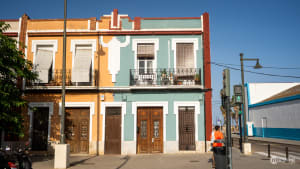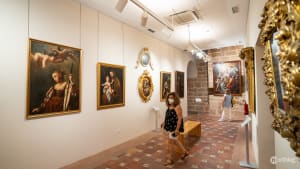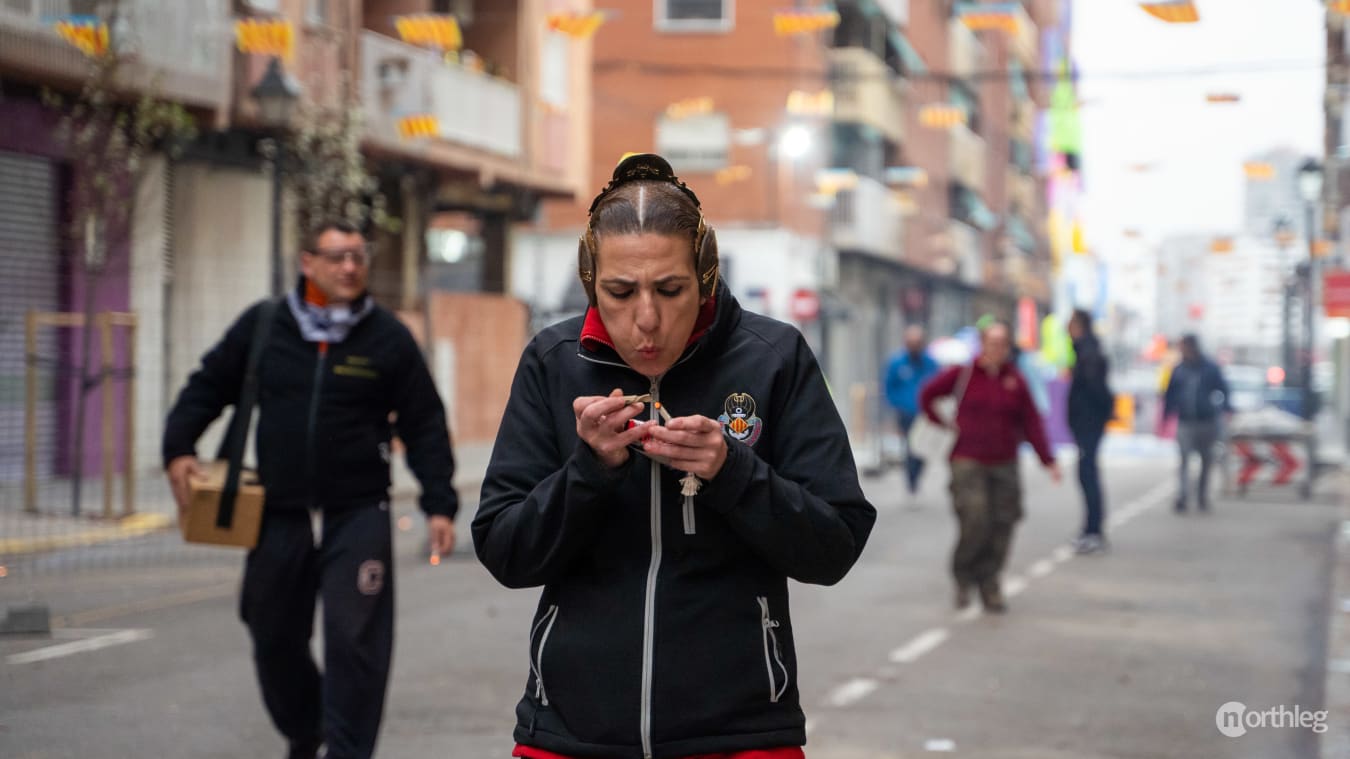
Local Customs in Valencia
Shared meals, laughter, and fireworks: the most beloved traditions in Valencia
Local Customs in Valencia in a nutshell…
Valencia thrives on communal traditions centered around shared meals, including impromptu street dinners (cenas de sobaquillo), mid-morning gatherings (esmorzaret), and outdoor barbecues (torrà), all emphasizing food, friendship, and celebration.
The city follows a distinct Mediterranean rhythm with late lunches (2-3pm), afternoon siestas, and lively evenings, while locals enthusiastically embrace fireworks for celebrations, particularly during the famous Fallas festival.
Valencian identity is expressed through the regional language (used alongside Spanish), evening social gatherings on the streets (salir a la fresca), and unique customs like the Cathedral pilgrimage for expectant mothers and the treasured layered Cremaet digestif.
We wouldn’t want you to arrive unprepared for what is waiting for you in Valencia. And although we often talk about the city’s varied architecture, its rich history, its astonishing sights, and its delicious food, what’s more representative of a place than its people’s habits?
Like any other city and region in the world, Valencia too, has its own traditions and customs. Some of them are so cherished that locals consider them a key part of Valencian identity. So why not get introduced to at least some of them? As you’ll see, they are very telling of the Valencian soul and way of living
Cenas de Sobaquillo
You might be walking the streets of some small neighbourhood in Valencia and suddenly hear the sound of laughter and people toasting for one reason or the other. Around the corner, you’ll probably find a group of friends sitting around a folding table, in a seemingly improvised dinner.
This is a cena de sobaquillo. Translating literally, you’ll find this means armpit dinner, but don’t worry, the event you’ve run into doesn’t involve any strange animal parts. Valencians love to gather and eat together, so they are quick to find any reason to celebrate and meet up with friends.
However, this doesn’t imply a formal setting or even a several-course-meal. Instead, what they’ll often do is an improvised dinner in the street, with pull-out chairs, paper cups and a picnic table.
Crucially, everyone brings their own dinner, usually a sandwich that they will carry under their arm, hence the name armpit dinner. We might also add that they’ll also most likely be carrying bottles of wine and drinks in their hands.
Esmorzar
This is one of the most dearly beloved traditions in the region, the esmorzaret. Usually, this meal is consumed anytime between 10:00 am and 12:00 pm (so before the Valencian lunch, which is around 2:00 pm). The esmorzaret is an old farm-worker tradition, a mid-morning snack of sorts. But don’t call it brunch, the Valencians won’t like it.
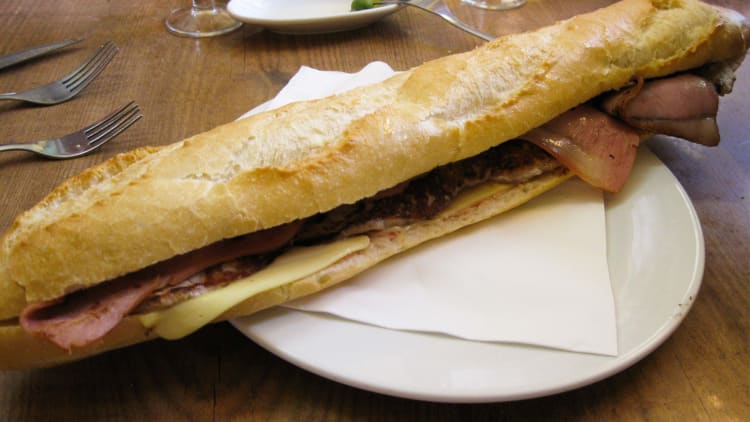
Although not solely relegated to Sundays, you’ll see this being most practised in the weekends. Friends will gather and go to an esmoraret bar, where they will be served a simple but filling meal.
Starting with a picaeta (appetizer): olives, peanuts, tomato and onion salad, and maybe some pickles. After that comes the baguette sandwich, usually filled with meat, sausages, Spanish tortilla, or any combination of the previous.
There are only two size options: a whole loaf or half a loaf. Valencians are extremely patriotic and devoted to the esmorzaret. Suffice it to say that they have an official list of awarded venues that serve the best esmorzaret: the Premis Cacau d’Or (the Golden Peanut Award).
If you want to try the esmorzaret, know that there are classic sandwich fillings. They include pairings such as longaniza sausage and blood sausage, horse meat with green garlic, as well as many others.
Esmorzaret is usually washed down with beer, and to finish off, many will have some other form of alcohol, usually Mistela, Casalla, or even a Cremaet. Contrary to what a hepatologist might say, these are not mutually exclusive treats.
Cremaet
The Cremaet, often the conclusion of a good esmorzaret, deserves its own section. A mixture between a dessert and a digestif, the Cremaet is more elaborate than other after-lunch drinks.
It consists of heated sugar and liqueur, to which a couple of coffee beans, lemon peel, and cinnamon are added. The mixture is then flambéed, and when the flames are extinguished, espresso is added to the mix.
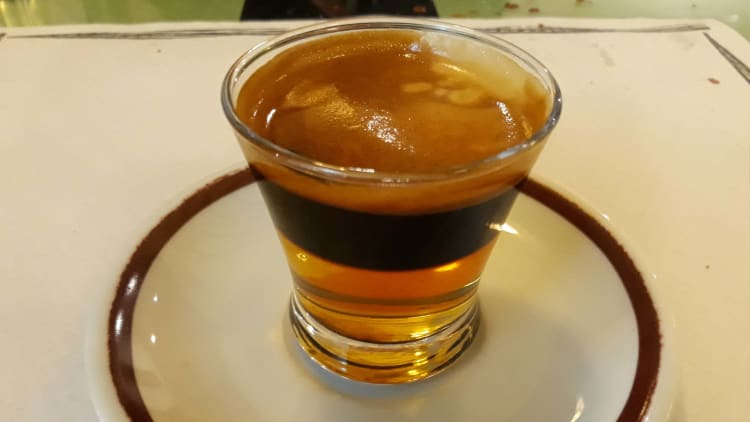
In some towns of the region, the drink is served in a clay mug, but in Valencia, it’s usually served in a glass cup, so you’ll be able to see the three layers: liqueur, coffee, and foam. Remember to drink it slowly to enjoy the flavours and to avoid burning yourself.
Fireworks
Valencians are a festive people, and they love celebrating with fireworks. Anyone between the ages of three and ninety will jump at any chance to whip out their firecrackers and make some noise in the streets.

Of course, the biggest and most obvious opportunity to do that is Fallas, the loudest and most colourful festival in Spain, where fireworks can be heard and seen daily for almost three weeks.
But even that doesn’t scratch the itch for Valencians. Most have their emergency stash of tracas at home, which they are ready to use in case of weddings, baptisms, communions, and even football victories.
Valencian Times
Unlike other local traditions, this one will personally affect your day-to-day activities.
Like in many other Spanish cities, the day in Valencia starts relatively late (especially if you’re used to people starting their day at 6:00 am or so), so many shops are not open until 10:00 in the morning.
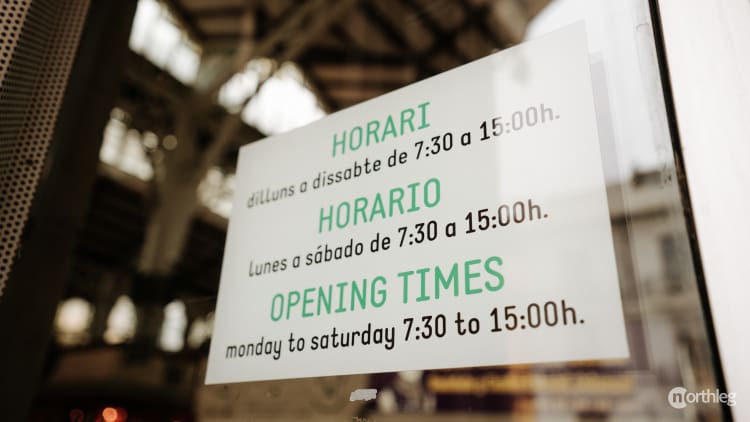
Normally, people won’t have lunch until 2:00 or 3:00 pm, after which siesta time is the norm. Shops start opening up again at about 5:00 pm. This means you might find the streets to be empty and the shops to be closed, especially away from the city centre and in small towns.
It also means it’s difficult to find a restaurant that’s open between 4:00 pm and 8:00 pm. The streets really come back alive after 6:00 pm, when people walk around and run their errands. Most shops are open ‘till late, and dinner time is around 9:00 - 10:00 pm.
Torrà
Yet another Valencian tradition that has to do with food and spending time together with your friends. Are you starting to see the pattern? The torrà is basically an improvised barbeque.
Tradition dictates that a torrà requires the presence of friends and/or family, a grill, some firewood, and meat. It can take place anywhere - in the countryside, in a dedicated recreational area, in a quiet street, basically anywhere it is allowed.
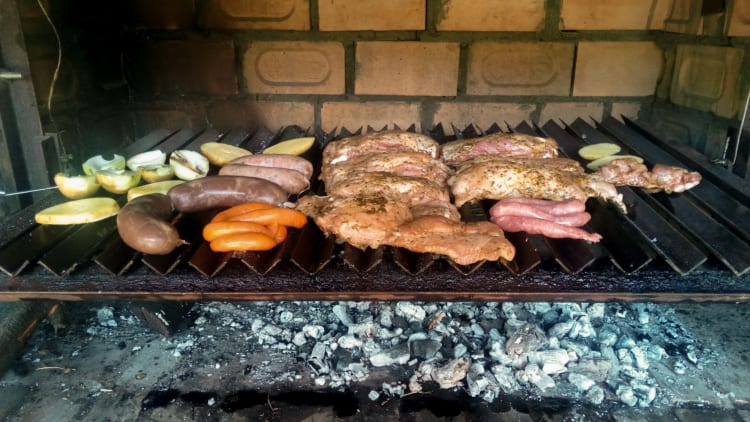
Of course, as the grill and meat take some time to get ready, other mandatory elements are snacks, drinks, and music. Probably, by the time the food is ready, you won’t even be hungry. But once again, the point is to be with friends.
Salir a la fresca
This is a habit common to many Spaniards (and not only them). Salir a la fresca literally translates to going out in the fresh air. This is the thing you’ll see many - especially older - people do all over Spain and Valencia.
After siesta time, while the cicadas are still loud and the sun is not painfully high in the sky anymore, a lady with a neat white-haired bun opens her front door.
In her flower-pattern dress, she sets up her plastic chair on the uneven sidewalk. Her friends and neighbours soon approach, setting up their own mismatched chairs all around, invading the street.
A cat or dog will lazily doze off between the outstretched legs. The lively group chit-chats and exchanges the latest neighbourhood gossip. Soon, a pleasant evening breeze will freshen up the air, and the sidewalk will be dotted with sunflower seed shells.
Later, as more friends gather, the streets will echo with laughter and stories, reimagined over and over again in the memory of so many years passed.
La Virgen del Buen Parto
Inside Valencia’s Cathedral, on an altar in the ambulatory, you will find the Virgen del Buen Parto, the Virgin of Good Delivery.

The tradition dictates that mothers-to-be walk nine times the Cathedral’s interior perimeter to ask for a blessed and safe birth. The custom is so popular that it is practised by non-believers and Catholics alike.
The Language
This cannot really be called a tradition, as it is a huge part of Valencian culture and identity. Like many other regions in Spain, Valencia too has its own language.
Kids in the region’s schools learn primarily in Valencian, and you’ll find that most historical venues and landmarks have two or more names: one in Valencian, one in Spanish, and usually a nickname - also both in Valencian and Spanish.

Most people in the city will speak at least a little English, but it is always appreciated when you try to make yourself understood in Spanish. If you can go the extra mile, and try out some Valencian, the locals will be delighted by your effort, even if the results are not great.







